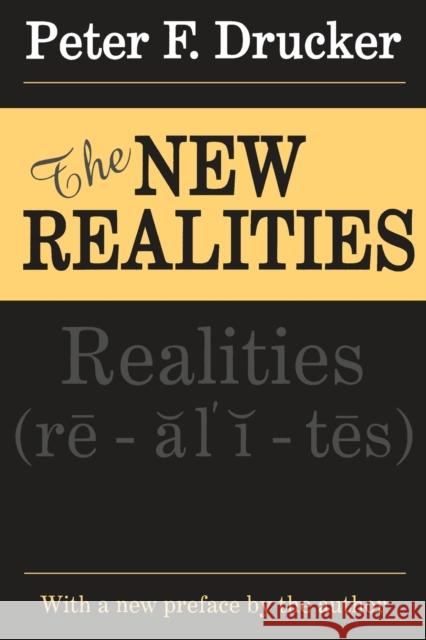The New Realities » książka
The New Realities
ISBN-13: 9780765805331 / Angielski / Miękka / 2003 / 262 str.
Even in the flattest landscape there are passes where the road first climbs to a peak and then descends into a new valley. Most of these passes are simply topography with little or no difference in climate, language, or culture between the valleys on either side. But some passes are different: they are true divides. History too knows such divides. Once these divides have been crossed, the social and political landscape changes; the social and political climate is different, and so is the social and political language. Some time between 1965 and 1973 we passed over such a divide and entered "the next century."Challenging, insightful, and provocative, Peter Drucker's The New Realities anticipates the central issues of a rapidly changing world. When it was initially published, in 1989, some reviewers mistakenly thought The New Realities was a book about the future, or in other words, a series of predictions. But, as indicated in the title, the book discusses realities. Drucker argues that events of the next thirty to forty years, or even further on, had already largely been defined by events of the previous half-century. Thus, Drucker discusses episodes in world history that had not yet happened at the time of the book's initial publication, such as: the archaism of the hope for "salvation by society" in "The End of FDR's America"; the democratization of the Soviet Union in "When the Russian Empire is Gone"; the technology boom of the 1990s in "The Information-Based Organization"; and the evolution of management in "Management as Social Function and Liberal Art."Graced with a new preface by the author that discusses both reactions to the original publication of the book and how important it is for decision-makers to consider the past and present when planning for the future, The New Realities is mandatory reading for understanding politics, government, the economy, information technology, and business in an ever-changing world.











